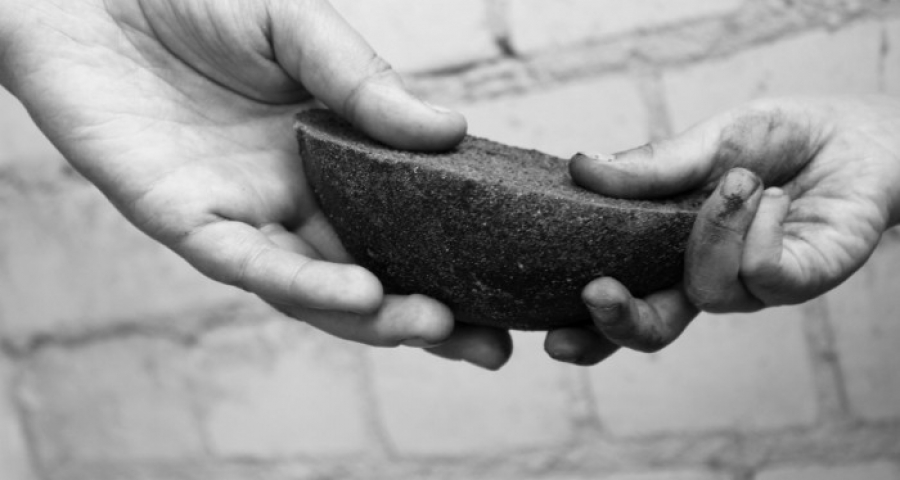Today marks the start of a column by the Leo Andringa Observatory of Poverty that will inform us on a monthly basis about the current approach adopted by the EoC to promote, implement and evaluate initiatives to combat poverty, starting from communion.
by the OPLA Team*
“So that there may be no more poor among us,” said Chiara Lubich at the launch of the Economy of Communion. With this in mind, from the outset, the EoC has sought to implement various initiatives to overcome vulnerability. To do this, different approaches have been adopted over the years, starting from different visions, to be embodied in different forms in the world, depending on local cultures.
It seems that the various approaches have a common trait, namely that the EoC has developed, from lived experience, its own specific characteristic aspect: communion. “We don't go to 'give things', but to create relationships and foster communion,” says an EoC operator who works in a deprived neighbourhood in his city.
But after all, why communion? How can we define what communion is? We have numerous conceptualisations that have been built in our narrative. The following explanation arrived to us from Brazil. “Why communion? The power of the human being emerges from encounter. For the EoC, therefore, communion means a culture of encounter capable of promoting the connection between opportunity and vulnerability in life and in the economy”.
Together with other movements and organisations working in the field of poverty, the Economy of Communion has consolidated awareness that the phenomenon of poverty, expressed by economic vulnerability, is multidimensional. Economic vulnerability, which often manifests itself in situations of destitution, unworthiness and absolute scarcity, is a reflection of different types of vulnerability that coexist or precede it: emotional, social, relational, political and educational vulnerability.
These are different types of resources and wealth that people are unable to access even before experiencing economic scarcity.
The Economy of Communion was born with the objective of eradicating poverty, i.e. its action must be complex and manifold. The redistribution of resources is a central and important point, but it is neither the first nor the central one. Overcoming vulnerability requires feeling worthy, part of a larger community, recognising oneself as the subject of one's own existence while walking alongside others. This is community, this is communion: a culture of encounter in which life, vulnerability and opportunity are shared. It is regenerating vulnerability through relationships.
On this basis, in recent years, the international EoC community has expressed in several countries the need to improve and strengthen our resource management process on a global scale, through establishing a set of public criteria accessible to all that allow us to deepen and strengthen our capacity to address vulnerability in our territories, sharing forms of mutual support.
This year, we started this process: based on the study and consolidation of our narratives, experiences, research already carried out and models practised by international cooperation organisations and technical standards applicable to this sector, we began the construction of a new global process for managing EoC resources.
Based on what is already being done around the world, three types of initiatives to combat poverty were identified: individual projects to support individuals; community initiatives implemented and financed autonomously at the local level by EoC communities, including companies or collaborations with other organisations working in the area; and structured integral human development projects implemented at the local level by local EoC organisations with accompaniment, technical assistance and co-financing from Azione per un Mondo Unito (AMU) (Action for a United World) or the international EoC.
When it comes to individual support projects, there can be three sub-categories, which represent dimensions that may be lacking to the person: social and health care (food, health and housing); education (in the form of scholarships); and finally income-generating activities.
In order to take into account the multiplicity of types of actions that can be carried out depending on the local situation, four criteria will be adopted that attempt to gather information to serve as a starting point for the analysis of each specific case. The criteria are: the possibility of establishing a community and continuing relationship; implemented reciprocity; the socio-economic analysis (context); and the analysis of the possibilities of self-sufficiency.
This is the beginning of a collaborative construction process in which everyone is invited to participate. These criteria will be, one by one, deepened and illustrated in this series of articles that will recount the current approach adopted by the EoC to promote, implement and evaluate anti-poverty initiatives based on communion.
The OPLA Team is composed of: Francesco Tortorella, Germán Jorge, Maria Helena, Tainã Santana








